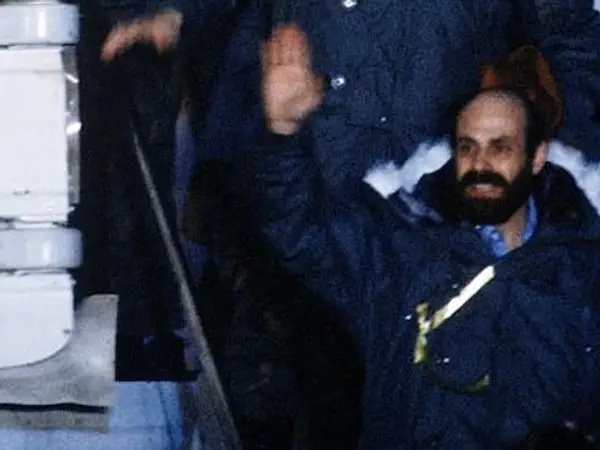Barry Rosen, a survivor of the Iran Hostage Crisis, will start a hunger strike at the venue of Iran nuclear talks in Vienna to draw attention to hostages held by Tehran.
Rosen, one of the American diplomats who were held hostage in Iran for 444 days (from November 1979 to January 1981) told Fox News on Sunday that the international community should make sure that no deals are struck unless all the hostages held by the Islamic Republic are free.
“I'm going to Vienna next week and to stage a hunger strike on behalf of these hostages. The hostages should not be forgotten, and they shouldn't be an afterthought in anybody's mind” the ex-hostage said, emphasizing that they and their families “have suffered woefully”.
He said there are at least four American hostages as well as a dozen more Europeans and British citizens currently held in Iran, stating that “they are human beings, not bargaining chips”.
He expressed hope that he will meet the Iranian delegation as well as US special envoy for Iran Robert Malley in Vienna.
While the negotiations in Vienna are centered on reviving the 2015 nuclear agreement, the JCPOA, many have raised the issue of Iran’s human rights record and its support for militant organizations in the Middle East. There is no indication that any of these concerns are dealt with at the talks.
Rosen, who was the press attaché in the embassy in 1979, said the nuclear deal is a political agreement that relies on trust between the two parties, stressing that no one can trust the Iranian government because of its hostage diplomacy as “it’s been taking hostages for more than 41 years… and is taking hostages right now”.
Rosen added that “these are gross violations of human rights that transcend any political engagement”, stating that his message is very simple: “Human beings over and above politics”.
He also called on the administration of Joe Biden to set preconditions about the release of hostages in Iran, describing the Vienna talks as an opportunity for Biden to bring back human rights to the center of US foreign policy as Secretary of State Antony Blinken has promised.
Late in 2021, Richard Ratcliffe, the husband of a British-Iranian woman held in Iran, staged a 21-day hunger strike outside the UK Foreign Office for the release of his wife Nazanin Zagheri-Ratcliffe, who was arrested in Tehran when she visited her family in April 2016.
Earlier in January, Nizar Zakka, a Lebanese who spent about four years in prison in Iran on political charges, announced the establishment of a non-profit NGO, Hostage Aid Worldwide, to support and help the release of people held hostage for unjust reasons.
Last week, Malley, along with UK Foreign Secretary Liz Truss, called on the Islamic Republic to release US and UK citizens who are imprisoned in Iran.
On fourth of November 1979, a group of radical students who were followers of Ayatollah Ruhollah Khomeini stormed the US Embassy in Tehran and took 52 US diplomats and citizens hostage, marking the moment as the start of Iran’s hostage diplomacy.
Since then, Iran has detained many dual nationals visiting the country and has used them as bargaining chips against Western countries, human rights organizations have said.
